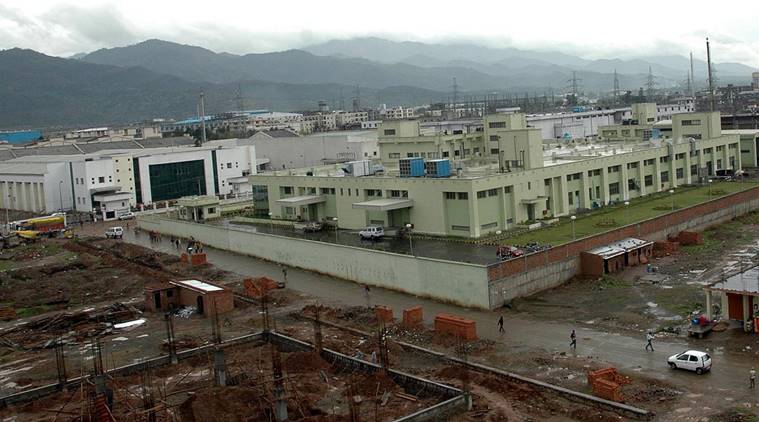 An aerial view of Baddi in Himachal Pardesh. (Express File Photo: Kamleshwar Singh)
An aerial view of Baddi in Himachal Pardesh. (Express File Photo: Kamleshwar Singh)
More than four weeks into the lockdown, 650 essential as well as non-essential industrial units located in and around Baddi, the country’s largest pharmaceutical manufacturing hub located in Himachal Pradesh, have resumed operations, albeit at a sub-optimal capacity. Many of these units became operational after April 20, when the Centre permitted certain relaxations to kickstart the economy.
“Till Tuesday, we had verified 503 units, which have become operational in the Baddi-Barotiwala-Nalagarh (BBN) industrial belt, engaging a workforce of 23,000 people. But we haven’t been able to verify all of them yet. Around 650 plants are estimated to have begun work, including more than 200 pharmaceutical plants. Two out of three cement plants have also become operational. Other sectors include food processing, printing and packaging, home appliances, electricals and corrugated box manufacturing,” said an official from the state industries department.
The essential sectors of pharmaceuticals, food products and their ancillary industries were already operational before the relaxations, but faced several hiccups such as sealing of the Jharmajri industrial area on April 3 following emergence of COVID-19 cases, which led to the closure of 70 units.
Two other areas in BBN became containment zones later on but currently, the entire Solan district has no active COVID-19 case and many of the stringent measures have been lifted.
“On March 26, we gave a blanket approval to all essential units so that they didn’t have to run around for curfew passes. With renewed guidelines from Union Ministry of Home Affairs (MHA), we set up a single-window clearance to facilitate movement passes for 30 per cent workforce of the non-essential sectors. It’s being done over WhatsApp helpline numbers and there’s no hassle involved,” another official said. He added, however, that movement of employees from neighbouring Chandigarh tricity, Punjab and Haryana continues to be prohibited.
Most of the manufacturers are operating at a production capacity of 30 to 40 per cent, officials said.
According to data maintained by the department, there are about 55,500 industrial units in the state, set up at an investment of more than Rs 52,000 crore, and employing more than 4.63 lakh people (before the lockdown). A whopping 98.6 per cent of these units are small scale enterprises.
Industry leaders discuss restoration measures
In a video conference by the Himachal Pradesh chapter of PHD Chamber of Commerce and Industry, members pitched for government incentives and relief for hospitality, horticulture, handloom and other industries.
They suggested waiver of fixed electricity, water, sewerage and other municipal charges for industrial and commercial consumers; increase in net credit to the MSMEs; issuance of a few passes per unit in the BBN area for people commuting from neighbouring states; notification of hospitality as priority sector to facilitate credit; relaxation in subsidy schemes; release of pending subsidies and grants to cooperatives; low-interest loans to private educational institutions; and a special financial package for hill states such as Himachal due to tough geographical conditions.
Meanwhile, Chief Minister Jai Ram Thakur Wednesday held a video conference with representatives of steel industries based in Kala Amb area and announced various concessions such as relaxation in payment of demand charges for industrial, commercial and agricultural consumers of electricity.
“The state government will ensure uninterrupted supply of raw materials and transportation of finished goods to the markets,” Thakur added.